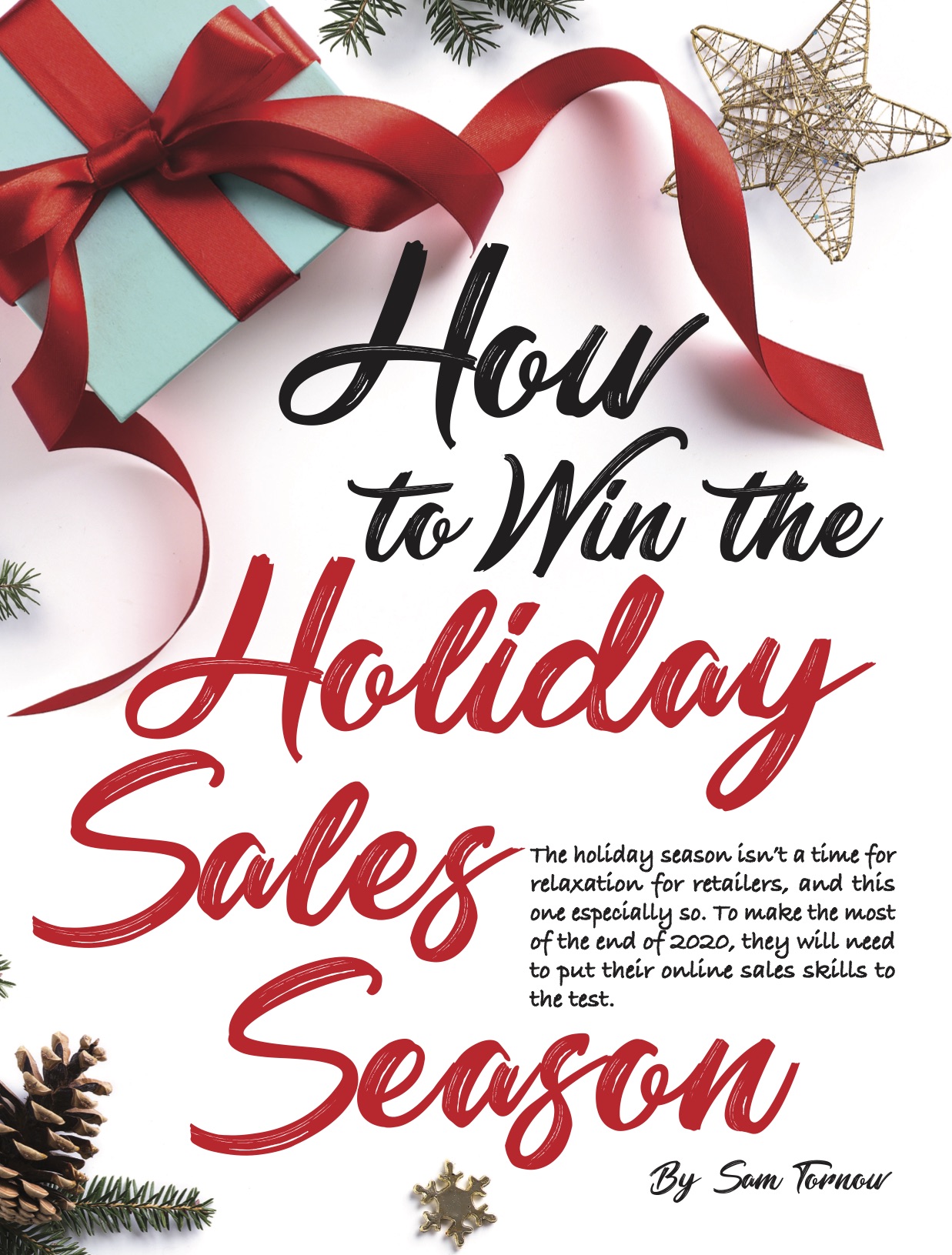
In August, Music Inc. reported on the best retail technologies, many of which were related to increasing digital sales, and in September, we offered four major ways to shape up a retail website. Now, with holiday sales on the horizon, it’s time to put everything into practice.
For retailers, Q4 is a critical time, one that’s planned for all year by carefully assembling sales and deals. This year, as we continue to endure the coronavirus pandemic, retailers must accept that their selling habits will need to change if they haven’t already. The Black Friday mobs will be smaller, and hectic Christmas shopping, which has already begun to take a backseat to online shopping in the past few years, will become even more of a memory. For retailers to financially make up for an unprecedented difficult year, they’ll need to not only get online but prepare and adapt.
Brian Douglas, owner and general manager of Cream City Music in Brookfield, Wisconsin, is already preparing for this year’s holiday season and predicts that it will be much different than in the past. “We’re anticipating, at least on our side, that we’re going to see significantly less in the way of in-person foot-traffic for these types of events,” he said.
Zooming out, and taking a look from an international perspective, the minds at Reverb agree with Douglas: It’s now or never for going digital. “Online sales are going to be more critical this holiday season than ever before,” Mark Anzelc, seller engagement senior manager at Reverb, said. “It’s no secret how COVID-19 is affecting how people shop at a global scale, and the likelihood of this thing turning itself around before the holidays is practically nonexistent. It’s something that we’re communicating to sellers is to make sure to be investing in e-commerce now.”
So much of U.S. holiday sales culture revolves around the Black Friday weekend, which now includes Small Business Saturday and Cyber Monday. People leave Thanksgiving early and queue for incredible bargains and promotions. Due to the coronavirus, though, some shoppers will certainly opt to stay home and do all their shopping online this year, meaning more pressure for stores that previously relied on that foot traffic to change. Douglas sees it as an opportunity for a record-shattering event, though.
“We’re not expecting that the customer base is going to want to come flying back into a showroom packed with people,” Douglas said. “So we’re expecting to see that explosive growth is going to be in the online sector of the business. We’re anticipating that online sales are going to be, at likely, their highest volume in our company history.”
Since he’s limited in his ability to get people physically in the store, in anticipation of a record-breaking online sales year, Douglas and his team are placing additional emphasis on customer engagement with various strategies across multiple platforms.
“What we do intend on doing, and what any agile and sharp retailer should be doing, is a great deal of targeted online marketing that’s going to reach [our] customers, existing and potential new customers, right when they’re at the moment of the decision-making process to buy something,” Douglas said. “We intend on being very present in people’s social media feeds through our direct email outreach in addition to just simple courtesy phone outreach, especially at the local level.”
Out of Stock
Unfortunately, retailers are also battling for supply. For many, it’s been harder than ever to stock the shelves, leaving some worried about not having enough product for a huge sale to be possible. EJ Dombrowski, store manager of Jim’s Music, a company with stores in Michigan and Wisconsin, is taking a risk-averse approach and only stocking what he knows will sell, which is already giving the store an advantage over understocked competitors.
“Our approach this year is to be careful about what we purchase, purchasing cool, solid sellers, nothing too crazy, for Christmas, even a little more than normal,” Dombrowski said. “We decided to double down and focus on our web advertising on Facebook and Google. Right now, with many companies out of stock on a product, it is allowing us to sell products online that we never have in the past, and I expect that to go through Christmas. With our online marketing, we are planning on promoting some Facebook contests and ugly instrument contests so we can interact with our community, and we are attempting to post a lot more micro-sales in-store, deals-of-the-day, spin-a-wheel-for-a-prize type things.”
Beyond the complications caused by the pandemic, Dombrowski pointed out another variable for retailers to pay attention to — the upcoming presidential election. “Just going through our historical records as a company, one of the things that we’ve seen is that elections can be a little bit shaky, in terms of sales, and then you usually see a positive spike in sales right after the election,” he said. “However, given the volatility that’s present in this election, it’s anybody’s guess.”
Tips from the Top
Few companies have been as impactful on online sales as Reverb in 2020. Thousands of retailers use the e-commerce hub as their official online sales destination. To help retailers prepare for the season, Anzelc has laid out four points to help online Reverb sales for MI retailers. However, the tips are applicable to almost all forms of online sales.
Anzelc’s first tip is to list now, not later: “On Reverb, when you list, you sell. It’s really that simple,” he said. “The holidays start earlier and earlier each year, and I hear it all the time, ‘I didn’t grow in Q4 the way I wanted to because I didn’t start listing early enough.’ Reverb has always been a destination for used, and its starting to turn that way for new as well.”
Additionally, Anzelc highlights the importance of taking eye-catching listing photos and providing well-written product descriptions.
Next, Anzelc urges retailers to have an international presence. He said that buying used gear from international sellers is a good way to keep your store stocked.
“COVID has bottlenecked supply at a global scale and buyers may need to purchase used if new isn’t available,” he said. “They may need to find those items in other countries, and if they’re not buying them from a seller [you] in another country then they’re buying from a competitor.”













